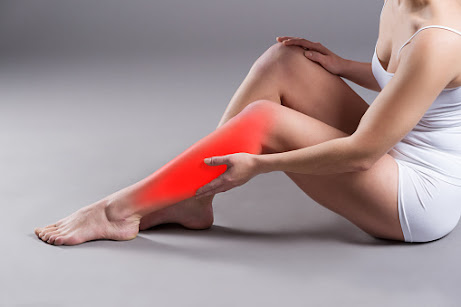The legs are swollen in summer. Why? What am I doing?
It's hot, you take off your shoes ... And after a while it is tough to put them again on. Or they push you. Your legs are swollen. It is hot? Poor circulate? What occurred? “I'm younger,” you watched, remembering how swollen ft and heavy legs are “things” that appear in your mother. Or your grandma.
And the fact is, you do not should be years vintage to sense
this swelling on your toes at the least once. For instance after a protracted
adventure with the aid of aircraft, educate or automobile. But it's also
accurate that the feeling of swelling in the ft repeats itself more and more
often over the years. And no longer simply on lengthy journeys. Even after many
hours inside the office. And worse, on relaxation days, but in intense
warmness. Why?

The head of the separation of Vascular Surgery of Ribera
Salud on the Torrejón Hospital, David Fernandez Caballero, explains to us very
instructively. "The heat reasons vasodilation, this means that that the
veins inside the recirculating circulate enlarge and then cannot perform their
function of venous return nicely," he says. So if there aren't any
troubles with venous outflow and upward circulate inside the ft, "greater
fluid builds up within the decrease frame and edema happens, which scientific
professionals call edema".
Dr. Fernandez Caballero says that due to the heat, "even
the railroad tracks make bigger in summer time," so that leg swelling is
enormous even in healthy people. For this motive, according to Ribera Salud,
"we must try to avoid it while warmth is the cause of edema".
"The best is not to spend loads of time in the sun or warmth, however to
searching for refuge in air-conditioned or cool rooms," explains Dr.
Fernandez Caballero. It is also beneficial to wash with bloodless water. Or at
the least positioned your toes and legs up. Because sure it's miles real. It's
now not about mothers or grandmothers. Activates blood move. "The cold
water acts like a vasoconstrictor, shrinks the veins and promotes blood
movement", which prevents the accumulation of huge amounts of fluid inside
the "lowest" a part of the body, the ft.
The head physician of the separation of Vascular Surgery on
the Torrejón University Hospital additionally recommends rubbing in bloodless
gels and usually finding the course “from the ft up” so one can prompt the
return circuit. He adds that it's far very important to lightly raise your legs
as few inches as feasible above the guide bracket to facilitate the discount or
disappearance of the edema.
What else can we do? Does food help us? As always, nature
contributes to our fitness. Dr. Fernandez Caballero strongly recommends a
wholesome weight loss program, little salt and masses of fluids. But it also
explains that there are herbal meals that act as "venotonic", like
purple grapevine, which contains powerful polyphenols; and horse chestnut.
Other herbal venotonics advocated by professionals are the pine bark and its pycnogenol, gotu kola, which is taken into consideration a herbal ally of the veins, and Melitoto or Melitotus officinalis and its coumarin. fashionglee

